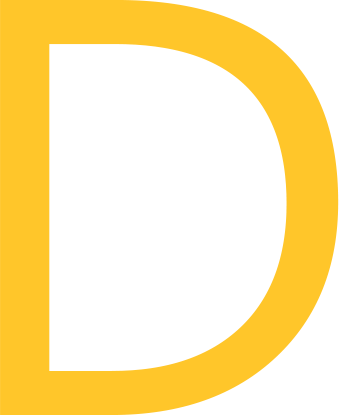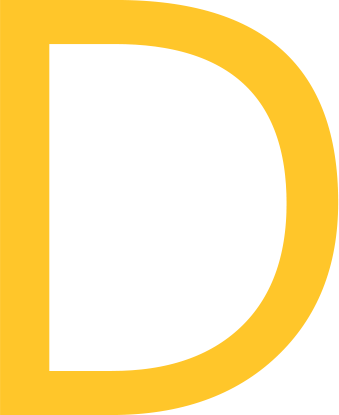
Fargo Student Debt Relief Lawyers
Assisting Clients With Student Debt Matters in North Dakota
Education is expensive. Unfortunately, many students are left with mounting debt that they must pay off for years into the future. If you are struggling to meet your student loan commitments or are otherwise in a tight space financially, The Dakota Bankruptcy Firm can help you develop a feasible plan out of debt. We will take a compassionate approach to your case, as we understand the strict rules around student loans.
Struggling with student loan debt? Contact us today at (701) 394-3215 to explore your relief options and get back on track financially.
What are My Student Loan Debt Relief Options?
There are several options for resolving your student loan debt. The process is not easy, nor is it so easily straightforward, but it is an effective way to help you out of debt.
Some student debt relief options we can help you explore are:
- Filing Chapter 7 bankruptcy. This is an option for debtors who have little income and will require liquidating certain assets to pay back your creditors.
- Filing Chapter 13 bankruptcy. This is for debtors who have enough disposable income to develop a 3-5-year repayment plan, during which you will reorganize your debts and pay back your creditors on a schedule.
One key benefit of filing for bankruptcy to address your student loan debt is that both bankruptcy options above will usher in an “automatic stay,” which prohibits creditors from pursuing collection actions like wage garnishment and foreclosure.
Note that filing for bankruptcy will not resolve all your debts. If successful, bankruptcy will discharge your unsecured debts (e.g., credit card bills, medical bills, personal loans), but it cannot discharge student debt. You will shed some of your debt, but discharging your student debt will require an additional step.


How to Request Student Debt Relief After Bankruptcy
After you’ve completed your bankruptcy case, you can proceed to request student debt relief by filing an adversary proceeding with the bankruptcy court. To build a strong case for relief, however, you have the burden of proving that you are experiencing “undue hardship” due to your student loan debt.
This means demonstrating to the court that:
- Your current financial circumstances are unlikely to get better.
- You have attempted in good faith to pay back your student debt.
- Your current financial circumstances are unable to adequately support you and your dependents.
- Repaying the loan would prevent you from maintaining a minimal standard of living.
- There is evidence that this hardship will continue for a significant length of the loan repayment period.
The court may choose between several outcomes, depending on the success of your case:
- You will be required to repay your loan but with different terms, such as a lower interest rate.
- Your loan may be partially discharged, and you will only be required to repay a portion of your loan.
- Your loan may be fully discharged, and you will not have to repay any of it. All collection activity will also be halted.
Federal Student Loan Forgiveness Programs
If you have federal student loans, you may qualify for loan forgiveness programs that can eliminate some or all of your debt. Two of the most common programs are:
- Public Service Loan Forgiveness (PSLF) – Available to those working in government or nonprofit jobs. After 120 qualifying monthly payments under an income-driven repayment (IDR) plan, the remaining balance is forgiven.
- Income-Driven Repayment (IDR) Forgiveness – After making payments under an IDR plan for 20-25 years, any remaining balance is forgiven.
Eligibility Requirements:
- PSLF requires full-time employment with a qualifying employer.
- Payments must be made under a qualifying repayment plan.
- You must submit an Employment Certification Form (ECF) regularly to stay on track.
Common Mistakes to Avoid:
- Not verifying employer eligibility for PSLF.
- Making payments under the wrong repayment plan.
- Failing to submit the ECF annually or after job changes.
Private Student Loan Debt Relief Options
Unlike federal loans, private student loans don’t offer government-backed forgiveness programs. However, there are still ways to reduce your debt:
- Negotiating with Lenders – Some lenders may offer lower interest rates, extended repayment terms, or even partial loan forgiveness if you can prove financial hardship.
- Refinancing – This can lower your interest rate and monthly payments but requires a good credit score and stable income.
- Loan Consolidation – Combining multiple loans into one can simplify payments, but it may not reduce the total amount owed.
- Settlement Agreements – In some cases, lenders may accept a lump sum payment that’s lower than the total balance owed.
Student Loan Debt and Bankruptcy Law Updates
Recent changes have made it easier to discharge student loans in bankruptcy:
- New Guidelines – Courts are now more willing to consider undue hardship claims.
- Notable Cases – Some borrowers have successfully discharged their loans, setting legal precedents.
- Future Legislation – Lawmakers continue to push for student loan reform, including making bankruptcy discharge more accessible.
If you’re struggling with student loan debt, staying informed about your options is key. A student debt relief lawyer can help you find the best path forward.
Frequently Asked Questions About Student Loan Debt Relief
Can I stop student loan payments if I file for bankruptcy?
- Filing for bankruptcy triggers an automatic stay, which temporarily stops collection efforts, including wage garnishment and lawsuits. However, it does not automatically eliminate student loan debt. You’ll need to file an adversary proceeding to attempt to discharge your loans.
Are there time limits on applying for student loan forgiveness?
- Yes. Programs like Public Service Loan Forgiveness (PSLF) require 10 years (120 qualifying payments), while Income-Driven Repayment (IDR) forgiveness takes 20-25 years. Keeping track of deadlines and ensuring eligibility is crucial to receiving forgiveness.
What happens if I default on my student loans?
If you default:
- Your wages could be garnished without a court order.
- Your tax refunds and Social Security benefits may be seized.
- Your credit score will drop, making future loans harder to get.
However, you may be able to rehabilitate your loan or consolidate it to remove the default.
Can I settle my student loans for less than I owe?
- For private student loans, settlements may be possible, especially if you can make a lump-sum payment. Federal loans are harder to settle, but certain hardship cases may allow for partial forgiveness.
Will student loan forgiveness affect my taxes?
It depends.
- PSLF and Teacher Loan Forgiveness are tax-free.
- IDR Forgiveness may be taxed as income, depending on current tax laws.
Consulting a tax professional can help you prepare for any potential tax burden.
Can I buy a house if I have student loan debt?
- Yes, but your debt-to-income (DTI) ratio matters. Lenders look at how much debt you have compared to your income. Enrolling in an income-driven repayment plan or refinancing can help make homeownership more achievable.
How can a lawyer help with my student loans?
A student debt relief lawyer can:
- Determine if you qualify for bankruptcy discharge.
- Help you fight wage garnishment or collections.
- Assist in negotiating lower payments or settlements.
Contact Our Student Debt Relief Lawyer in Fargo Today
Our student debt relief lawyers at The Dakota Bankruptcy Firm can help you evaluate your options and develop a plan unique to your circumstances. We will guide you through the process from beginning to end, from filing for bankruptcy to proving your case in an adversary proceeding. Student loans have a bad reputation for being unforgivable and non-dischargeable, but with the right team of attorneys on your side, you can find a path out of debt.
Need legal guidance for student loan forgiveness or bankruptcy? Contact us at (701) 394-3215 for a free consultation with our experienced student debt relief lawyers.
Get access to some of the most frequently asked bankruptcy questions now. It's that easy!

Why Clients Continue to Choose Our Dedicated Legal Team
-
1
Payment Plans AvailableDo not be discouraged by the costs that are associated with bankruptcy filings. We offer payment plans for your convenience.
-
2
Free ConsultationsGet a free and confidential initial consultation to help us determine if you qualify for bankruptcy.
-
3
One On One Legal AccessWork directly with our founding partner. Mac VerStandig. He will strategically determine which bankruptcy options are best for your unique situation.
Take advantage of a free consultation with our team.


